exhibition
05 May 2021 > 12 September 2021
Bigger than MyselfHeroic Voices from ex-Yugoslavia
galleria 3
curated by Zdenka Badovinac
associate curator Giulia Ferracci
valid until 9 April due to the Museum’s first-floor closing
buy online
the only open ticket, valid for 100 years, for one admission to the Museum and all current exhibitions
buy online
valid for access to the Museum during the last opening hour, available online and at the Museum’s digital ticket point only
upon presentation of the membership Card or Carta EFFE
buy online
minors under 18 years of age; disabled people requiring companion; EU Disability Card holders and accompanying person; MiC employees; European Union tour guides and tour guides, licensed (ref. Circular n.20/2016 DG-Museums); 1 teacher for every 10 students; ICOM members; AMACI members; journalists (who can prove their business activity); myMAXXI membership cardholders; European Union students and university researchers in Art and Architecture, public fine arts academies (AFAM registered) students and Temple University Rome Campus students from Tuesday to Friday (excluding holidays); IED – Istituto Europeo di Design professors, NABA – Nuova Accademia di Belle Arti professors, RUFA – Rome University of Fine Arts professors; upon presentation of ID card or badge – valid for two: Collezione Peggy Guggenheim a Venezia, Castello di Rivoli Museo d’Arte Contemporanea, Sotheby’s Preferred, MEP – Maison Européenne de la Photographie; on your birthday presenting an identity document
for groups of 12 people in the same tour; myMAXXI membership card-holders; registered journalists with valid ID
buy online
under 14 years of age
buy online
disabled people + possible accompanying person; minors under 3 years of age (ticket not required)
book online
MAXXI’s Collection of Art and Architecture represents the founding element of the museum and defines its identity. Since October 2015, it has been on display with different arrangements of works.

galleria 3
curated by Zdenka Badovinac
associate curator Giulia Ferracci
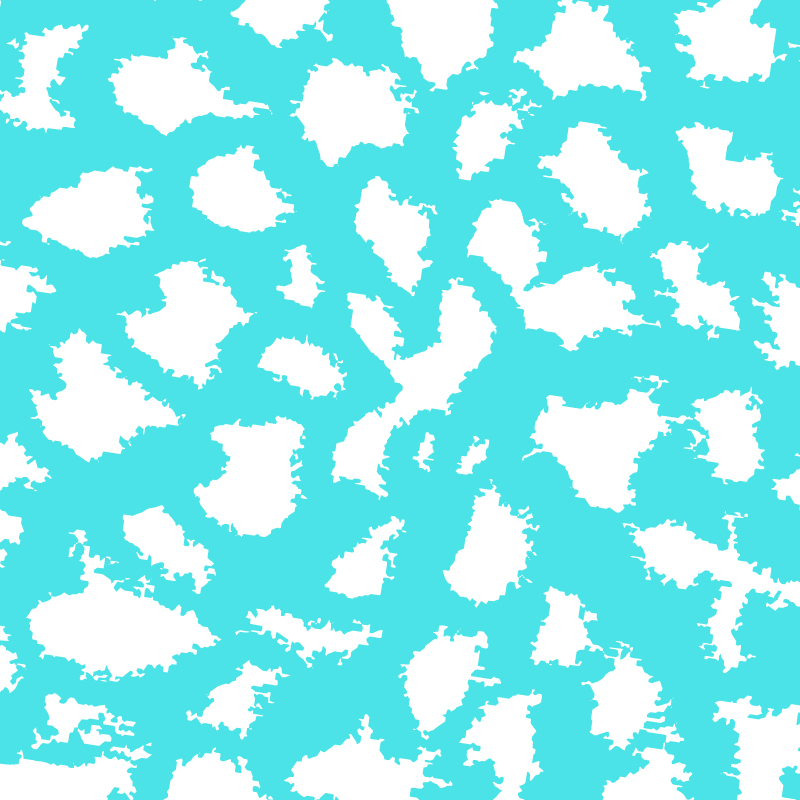
Maja Bajević
Djordje Balmazović
Lana Čmajčanin
Group of Anonymous Artists and Activists
Ibro Hasanović
IRWIN
Adela Jušić
Udruženje Kurs
Siniša Labrović
Dalibor Martinis
Tobias Putrih
Driton Selmani
Mladen Stilinović
Milica Tomić
Society as a combination of self-sufficient autonomous communities, devoted primarily to the production of goods and services, and capable of ensuring the well-being of all, is best expressed by the concept of BROTHERHOOD. This section recalls the distinctive features of the Yugoslav socialist model, which underpinned the economy and the geopolitical alignment of former Yugoslavia for more than four decades in the twentieth century. This chapter explores ideas, movements and stories from the past of the Balkan peninsula and brings back to life illustrious examples from the past in which workers used to see themselves as brothers united by a common destiny. The section also tackles the theme of pride in collective work and the intolerable condition of exploitation of the workers nowadays.

Marina Abramović
Božena Končić Badurina, Duga Mavrinac
Vlasta Delimar
Hristina Ivanoska
Sanja Iveković
Gjorgje Jovanovik
Darinka Pop-Mitić
Marta Popivoda, Ana Vujanović
Lala Raščić
Želimir Žilnik
The artists in this section analyse some of the attempts made at the time of the former Yugoslavia to reduce social inequalities and to counter forms of totalitarian power, and they illustrate the stories of the men and women who fought to satisfy the needs of the entire community. This exhibition chapter includes works related to the events that led to the outbreak of World War I and the collapse of the Austro-Hungarian Empire in Yugoslavia, the subsequent liberation and reconstruction of the Peninsula in the aftermath of World War II, the drama of the civil wars in Bosnia and Herzegovina (1992- 1995), the conflicts in Kosovo (1996-1999) and a commentary on the current protests in Europe against authoritarian forms of power.

Danica Dakić
Igor Grubić
Doruntina Kastrati
Somer Şpat
Marko Tadić, Miro Manojlović
Society as a combination of self-sufficient autonomous communities, devoted primarily to the production of goods and services, and capable of ensuring the well-being of all, is best expressed by the concept of BROTHERHOOD. This section recalls the distinctive features of the Yugoslav socialist model, which underpinned the economy and the geopolitical alignment of former Yugoslavia for more than four decades in the twentieth century. This chapter explores ideas, movements and stories from the past of the Balkan peninsula and brings back to life illustrious examples from the past in which workers used to see themselves as brothers united by a common destiny. The section also tackles the theme of pride in collective work and the intolerable condition of exploitation of the workers nowadays.

Yane Čalovski
Jasmina Cibic
David Maljković
Luiza Margan
Anja Medved, Nadja Velušček
The art, architecture, and urban planning in former Yugoslavia in the 1950s is the subject of HOPE, the fourth thematic section of the exhibition. In this section, the artists explore modernism as it appeared in the arts of the country as a form of cultural revival that started in the post-war period. Here, modernism is a form of expression close to the abstract, lyrical, geometric, and informal approaches adopted by artistic movements in the West at the time, as well as to the current of Russian neo-constructivism. Art comes out of museums and becomes a representation of social interaction: monuments are mainly designed as abstract sculptural/architectural structures, space is arranged according to its function, and towns are built and integrated into the productive and commercial sector of its inhabitants.

Lenka Djorojević, Matej Stupica
Siniša Ilić
Marko Peljhan, Matthew Biederman
Andrej Škufca
Natalija Vujosević
The relentless expansion of the internet and the rise of new technologies has led to ever higher levels of individual computerisation. Automation plays a key role in the digital revolution and increasingly permeates a globalised world. Even though we cannot yet be sure what impact new technologies will have on human life, the rise of digitalisation has clearly changed ways of doing business, the organisation of work, interpersonal interactions, and the perception of individuals. Systems such as the Cloud, the Internet of Things (IoT), big data, machine learning, and robotics are all key to accessing free communication, but at the same time they constitute a RISK, threatening privacy, and they make us vulnerable as individuals.
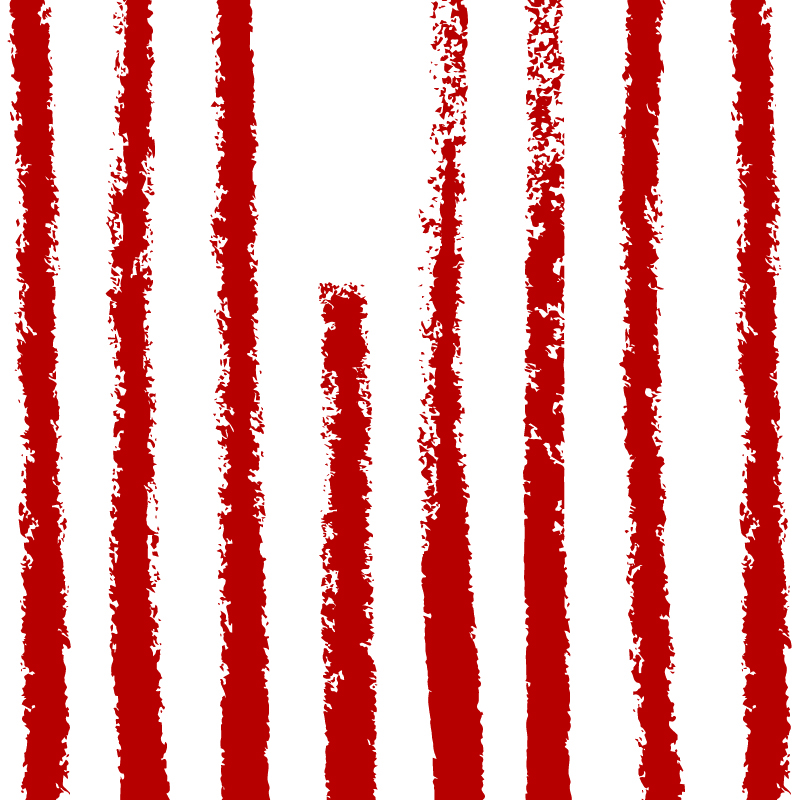
Fatmir Mustafa-Karllo
Tomislav Gotovac
Janez Janša, Janez Janša, Janez Janša
Vladimir Nikolić
Ilija Šoškić
At the heart of the INDIVIDUAL section is the political ideology of neoliberalism, which has come to shape our way of thinking, working, and living together. Individualism, competition, the striving for success, and profit are the founding principles of capitalist societies, and have led to the breakdown of ancient concepts that were deeply rooted in Western consciousness. The idea that “there is no such thing as society” has caused a deep rift in the minds of individuals. Can we view society as a set of ‘intentions and feelings’, based on principles of tolerance and respect? Can we associate the values of solidarity and equality with the concept of a meritocracy? The works presented in this section explore these and many other questions.
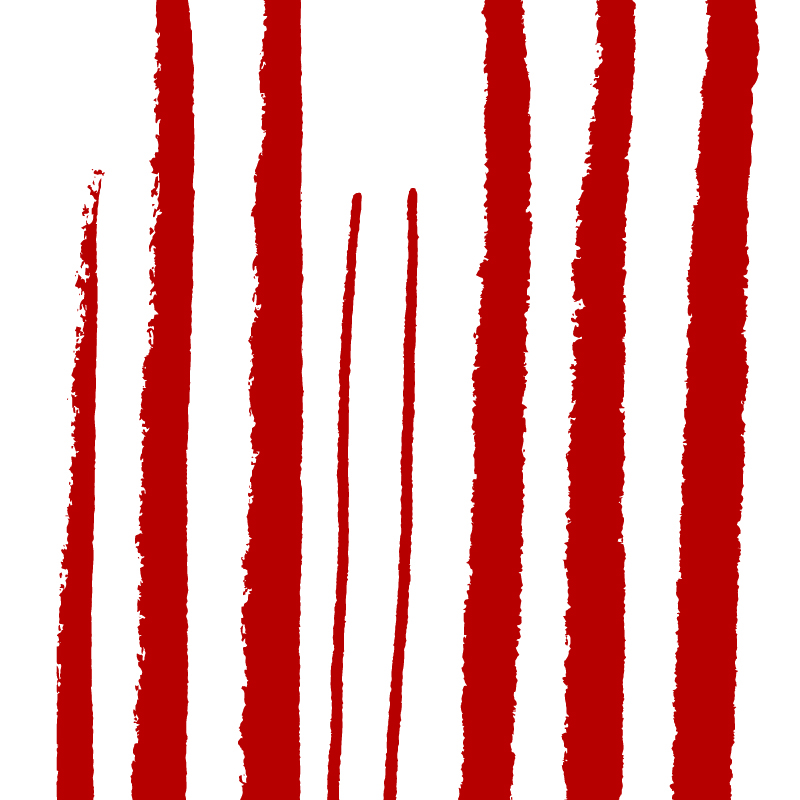
Nika Autor
Alban Muja
Zoran Todorović
Over the past century, considerable importance has been attributed to the phenomenon of migration and to the number of asylum seekers and migrants from the Middle East and Africa who attempt to cross the Mediterranean. Taking in foreigners and protecting those suffering from persecution has a long history in European civilisation, which considers the protection of human life and the stigmatisation of discrimination as fundamental principles. This section is devoted to the issue of ALIENNESS, to those that are different from us, and who are viewed as an indispensable means for enriching the genetic heritage of the West with a view to bringing about solidarity and civil progress. In this section there are works dedicated to the last European conflict of the Twentieth Century, to the evacuees of Kosovo, to the most current and dramatic facts related to the Balkan route and to some virtuous examples of integration in the centres for migrants.

Jože Barši
Ištvan Išt Huzjan
Gregor Mobius
Marko Pogačnik
Marjetica Potrč
Nada Prlja
Maja Smrekar
The exhibition also includes an in-depth study of the theme of nature and its consumption. The artists in this section, which is entitled METAMORPHOSIS, reflect on how nature has been changed by exploitation, the incursion of technology, the environmental crisis, and the disruption of our relationship with our habitat. But then again, as the current pandemic has shown us, the lives of all living beings are closely interconnected in different ways and on many levels. This part of the exhibition explores the idea of interdependence between different species and that of respect towards the context we are part of as well as the environment.
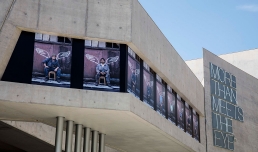
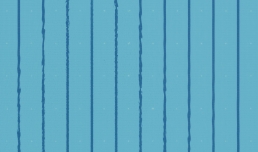
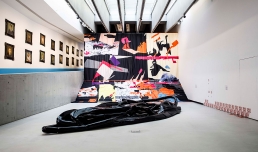
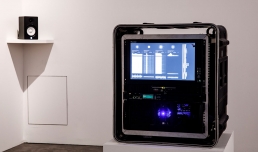
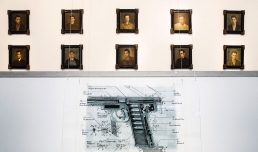
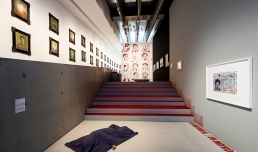
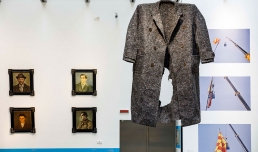
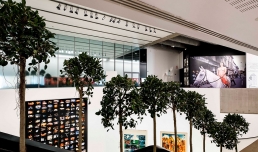
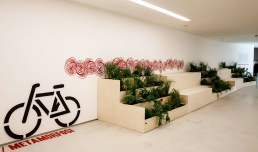
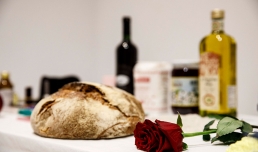
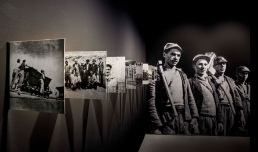
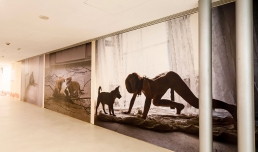

54 artists read the history of the territory through the gestures of contemporary heroes, considering – among others – the themes of hospitality and coexistence.
The exhibition marks a new chapter in the research dedicated to the Middle East and the Mediterranean area. It illustrates the artistic buzz in former Yugoslavian countries with a specific interpretation key.
Can the Socialist legacy help to recover the concept of the “common good”, in a complex territory that has recently suffered the drama of the Civil War and the rise of nationalism in opposition to the multi-ethnicity that distinguishes it and the economic crisis that has affected the whole of Europe?
Over 50 artists read the history of the area through the gestures of contemporary heroes, who contributed to the crisis of nationalism, favoring important reflections on the themes of hospitality and coexistence.
Artists:
Marina Abramović; Nika Autor; Maja Bajević; Djordje Balmazović; Jože Barši; Yane Čalovski; Jasmina Cibic; Lana Čmajčanin; Danica Dakić; Vlasta Delimar; Fatmir Mustafa-Karllo; Tomislav Gotovac; Group of Anonymous Artists and Activists; Igor Grubić; Ibro Hasanović; Ištvan Išt Huzjan; Siniša Ilić; IRWIN; Hristina Ivanoska; Sanja Iveković; Janez Janša, Janez Janša, Janez Janša; Gjorgje Jovanovik; Adela Jušić; Doruntina Kastrati; Božena Badurina Končić, Duga Mavrinac; Udruženje Kurs; Siniša Labrović; David Maljković; Luiza Margan; Dalibor Martinis; Anja Medved, Nadia Velušček; Gregor Mobius; Alban Muja; Vladimir Nikolić; Marko Peljhan, Matthew Biederman; Marko Pogačnik; Darinka Pop Mitić; Marjetica Potrč; Nada Prlja; Tobias Putrih; Lala Raščić; Driton Selmani; Andrej Škufca; Maja Smrekar; Ilija Šoškić; Somer Şpat; Mladen Stilinović; Matej Stupica, Lenka Djorojević; Marko Tadić, Miro Manojlović; Zoran Todorović; Milica Tomić; Marta Popivoda, Ana Vujanović; Natalija Vujosević; Želimir Žilnik.
exhibition's sections
freedom
equality
brotherhood
hope
risk
an individual
alienness
metamorphoses
Cataloghi della mostra
2021 exhibition’s catalogue
Bigger Than Myself. Heroic Voices from Ex-Yugoslavia